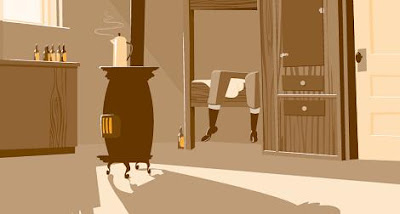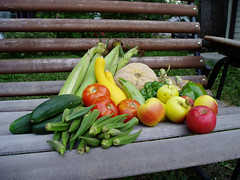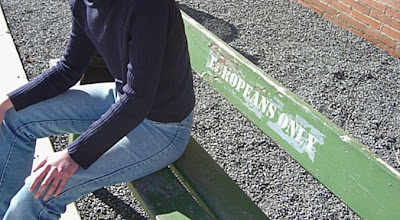
Andy Crouch has a
new essay on culture-making.com about online social networks (scroll to August 18, because I can't find a way to link to individual articles).
[Courtesy of Andy's comment:
here's the link. Thanks, Andy!]
Looking at Twitter in particular, he points out that there is a limit to interpersonal relationships people can handle: somewhere around 150. Beyond that, as he says, "our little brains get overloaded. But online social networks are not just relational tools; they're also tools for "broadcasting".
It may well be that many of the most powerful media of the next generation will have this hybrid quality—keeping us connected, in some thin but real sense, to our "real" friends, but also allowing us access to the thoughts of folks like Barack Obama. And the second group, the "broadcasters," will likely be the drivers of whatever business model eventually makes these networks sustainable.
True enough. But it's important to add one detail, important from the perspective of humanness:
online friends are not identical to real friends. The difference lies in love.
Dr. Venn can help us here:

In this model, set A represents people to whom I am bound by love (broadly conceived); set B represents people to whom I am bound by online social networks. The intersect are those people I know online, and whom I love.
This is an idealized, of course: love resists facile quantification, so it's hard to know where real loyalties lie. One test, of course, is the sickness test: who will come for a visit weeks and months into a sickness? Survivors of such illnesses often testify of surprise about who came and who didn't.
The other source of the confusion is cultural, not technological: as a culture of individualists, we really have no handle on loyal friendship. We are lonely, we don't know how to have friends, and we don't know how to be friends.
So when Myspace et al. use the human word
friend to denote a morally neutral technological relationship, our confusion only grows. Adolescents, of course, who are in the process of that most traumatic of splits--away from parents--are doubly confused here.
Then there is the cross-cultural. Americans as a rule are far more prepared to use the word
friend than people of more communal cultures. I have, for instance, found old Swiss classmates of mine on Facebook, people with whom I spent years in the same room. But I wouldn't dare add them as friends, because they weren't friends, in the Swiss sense: they weren't people who'd cross the world to be by my deathbed, or visa-versa. And so they remain unconnected to my Facebook account.
But since we live in a hybrid culture, and since Facebook and Myspace remain thoroughly American, I am also friends with people I don't even know, or in the case of Johnny Cash's Myspace account, people who are dead. (I share the latter relationship with 302,000 people, around the population of Pittsburgh.)
Culture-Makers, to use Andy Crouch's term, have low-hanging fruit here: Friendship,
real friendship, is a lost art, but one which has strong support in scripture and church tradition. Culture-Makers concerned about the individualism in American culture could do worse than look at
Reclaiming Friendship, to steal the title of Ajith Fernando's out-of-print, pre-Myspace gem.








 So what's a place-conscious person to do? Find stand-ins, of course. This summer I've been making "lemonade" from sumac berries—something I'd never done before, and which frankly always sounds just a little too granola for me. But it's cheap (free), and fun, so why not? And it's good. Sort of citrus-y tart, and beautifully red.
So what's a place-conscious person to do? Find stand-ins, of course. This summer I've been making "lemonade" from sumac berries—something I'd never done before, and which frankly always sounds just a little too granola for me. But it's cheap (free), and fun, so why not? And it's good. Sort of citrus-y tart, and beautifully red.

